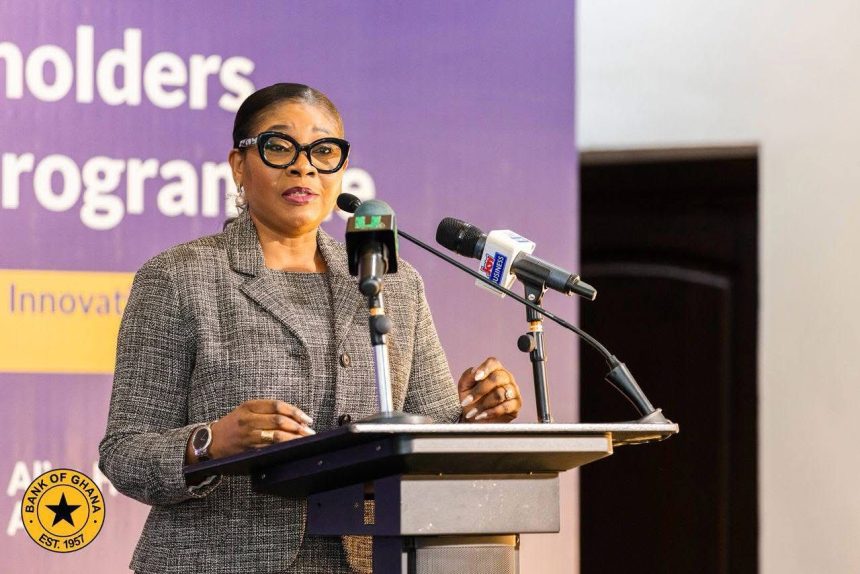Mrs Matilda Asante-Asiedu, second deputy governor of the Bank of Ghana, has emphasized the critical importance of service quality, innovation, and cybersecurity in modern banking.
Speaking at a training session organized by the Financial Stability Department, Mrs Asante-Asiedu called for a renewed commitment to customer-centric practices and stronger internal controls across the industry.
The session was attended by stakeholders in Ghana’s financial sector, including representatives from the Ghana Association of Banks, PwC, and the Bank of Ghana, as well as consumer reporting officers and compliance professionals.
“The fact that we’re here today, investing resources in this training, should tell you how critical service quality delivery is for the Central Bank,” she said.
“We could have just issued the guidelines and left the banks to follow, but we’re engaging because we believe in learning from each other and improving together.”
She shared a personal anecdote from a recent trip to Spain, where a failed card transaction nearly disrupted her shopping experience.
The story served as a reminder of the real-world impact of service failures on customers, especially when alternatives are unavailable.
Mrs Asante-Asiedu stressed that even small lapses in service—such as the 2% downtime often overlooked in performance metrics—can affect thousands of customers.
“That 2% could actually be 10,000 customers impacted by poor service,” she noted.
The theme of the event, “Excellence in Service, Innovation in Delivery, Security in Practice,” was described as the cornerstone of modern banking.
She highlighted the growing expectations of consumers for fairness, speed, and professionalism, especially in how complaints were handled.
She cited data showing a 7% increase in complaints to the Bank of Ghana in 2024, rising from 695 to 743 cases. “These could have been resolved at the institutional level with a little more care and attention,” she said, urging banks to improve internal collaboration and responsiveness.
She also addressed the rising threat of fraud in the digital banking era.
In 2024, over 16,700 fraud cases were reported, with losses nearing 100 million Ghanaian cedis. Alarmingly, 33% of these cases involved bank staff.
“This calls for greater vigilance, ethics, and discipline,” she warned.
“Technology must not be a tool for vulnerability but for trust.”
She encouraged banks to utilize the Bank of Ghana’s regulatory sandbox to test new solutions and emphasized the importance of embedding cybersecurity into daily operations.
“No level of innovation or service quality will offset poor security,” she said.
Mrs Asante-Asiedu reminded participants that service excellence and security were collective responsibilities.
“It’s not just the job of the compliance officer or the head of risk. It starts from the top—at the board level—and must be embraced by all.”
She urged the industry to recommit to fairness, transparency, and customer care, stating, “The strength of our banking system lies not just in profits, but in how we treat our customers.”
Dr Kwasi Osei-Yeboah, Head Financial Stability Department, BoG, in his welcome address, said the workshop was a platform for action, a catalyst for improving service delivery, driving innovation with purpose and reinforcing trust through transparency and security.
GNA






